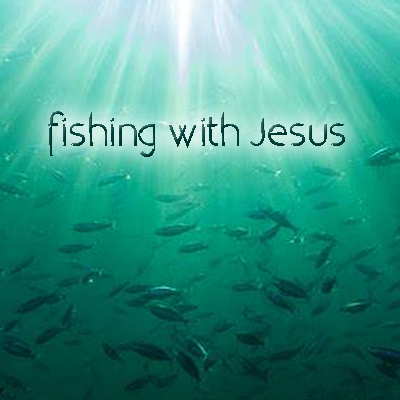I arise today...
Through God’s host to save me
from everyone who shall wish me ill, afar or near...
The Lorica of Saint Patrick (St. Patrick's Breastplate Prayer)
Paranoia and fear blaze through our culture like a raging forest fire. Everywhere we turn it seems there is someone who wishes us ill, both far and near. They may be as distant as refugees on the border or politicians in Washington or as close as the person sitting on the next pew in church or even across the dinner table in our home. More often than not, such fears are rooted in our perceptions rather than in real threats to our being. The people we are most certain are “out to get us” likely don’t view us as significant enough to bother with.
In some ways, our fear of being harmed flows out of our own sense of pride and our inclination to think of ourselves as more important than we are. I once knew a family who had turned their trailer home on a small rural street into a bunker with an arsenal of assault weapons lined up along hatches they had cut in the outside wall facing the street. They said when ISIS came marching through town to mutilate their daughters and granddaughters that those terrorists wouldn’t get anywhere near their house. Clearly ISIS would not be interested in this tiny little rural crossroads in the middle of nowhere, but the perception made this family feel like they were going to be the saviors of their community. It was as much a delusion of grandeur as it was a delusion of terror that did not actually pose an imminent threat.
It is true that we have enemies. St. Patrick spent his childhood in slavery and in his world the threat of death may have indeed been a real possibility. This portion of the prayer may be particularly valuable for those who are serving in war or on the front lines of local law enforcement or security. It may echo the prayers of powerful people who have made many enemies in their lives. It may even be a prayer on the lips of terrorists or drug lords who are always looking over their shoulder despite the fact that they have put themselves in that situation.
For most of us, however, it may just be that in saving us from those who wish us ill, God must first save us from our illusion that we are such a central target to whoever we may view as our enemies. What if being “saved from our enemies” actually involves being “reconciled with our enemies” through love and forgiveness. An enemy turned friend through the love of Christ is no longer a threat. Maybe, just maybe, Jesus was onto something when he said:
You have heard that it was said, ‘You shall love your neighbor and hate your enemy.’ But I say to you, Love your enemies and pray for those who persecute you.
Matthew 5:43-44
I do not want to diminish in any way that there are some who truly do need salvation from dangerous situations. For those suffering from abuse, domestic violence, human trafficking, or any other form of intentional harm against your body or soul, this prayer is for you. May God’s host indeed save you from all who wish you ill, afar and near, and may God place in your paths people who will stand with you against such evil.
But for those who simply see enemies everywhere you look, every time you turn on the news, or every time you see someone who looks or thinks differently than you, maybe God wants to save you from your own fear and paranoia. Maybe God is inviting you to turn an enemy into a friend. Maybe, just maybe, hate and fear could actually be defeated by the power of love.
Could it be that we are truly our own worst enemies?
Reflections:
1. Who is it that you feel you may need saving from? Is the threat legitimate or only perceived? If the threat is legitimate, who might God have placed in your path to help?
2. What triggers your feeling of being threatened? What steps will you take to listen more to the voice of God than the voices of fear in our world?
3. Pray for an “enemy” every day this week by name. If you do not know someone personally, find someone in a news story who you might consider to be “against you” or your beliefs and pray for them. Perhaps a criminal, a terrorist, a politician from “the other party,” etc. Reflect on how God may be changing your view of them as you pray and how God may be calling you to respond.
Our journey through St. Patrick's Breastplate Prayer continues next week:
... I summon today
all these powers between me and those evils, against every cruel and merciless power that may oppose my body and soul…





